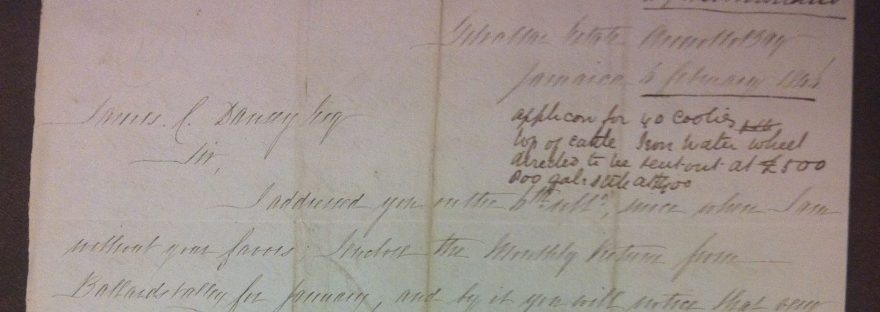Last Friday I had the pleasure of presenting at the Archival Research Conference, sponsored by the Advanced Research Collaborative at The Graduate Center, CUNY. It was a wonderful opportunity to share my experiences working in the archives at Duke University, which I have discussed here and here. I was on the panel, “Mining Alternative Geographies of Race and Labor,” chaired by Professor Herman Bennett from the History program.
My paper, “Traces of the Coolie: An Archival Encounter” was largely a reflective piece, showcasing some of the important letters and documents I was able to find in the “Ballard’s Valley and Berry Hill Penn Plantation Records, 1766-1873” that contained references to coolies and coolie labor. Presenting alongside supportive colleagues and to such a generous audience gave me the confidence to share my questions and concerns about the materials I came across in this collection and how I plan to incorporate them into my dissertation. Usually introducing work that is still “in progress” would be a daunting experience for me, but I found it energizing to participate in a conversation about how we approach archival research, including how to negotiate the volume of the material we collect and how to grapple with what is missing or absent from the archive.
